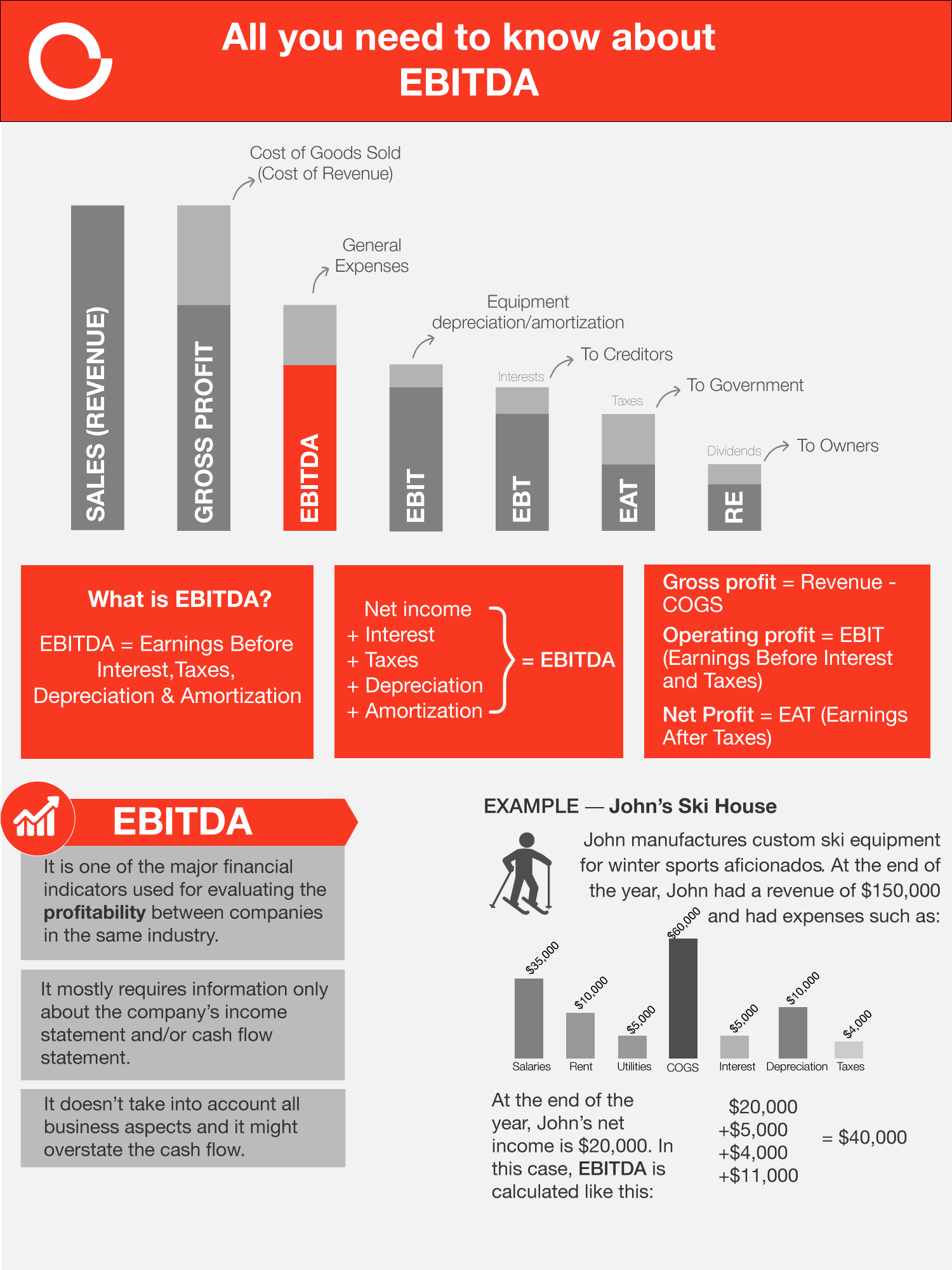Entrepreneurship
EBITDA vs. Net Profit
August 10, 2018

When analyzing the financial health of your company, these financial terms are two key indicators that provide valuable information. For example, if an investor expresses his interest in your business, he will make the comparison between EBITDA and Net Profit in order to get the bigger picture of your company’s status.
Definitions
EBITDA (earnings before interest, taxes, depreciation & amortization) is one of the major financial indicators used for evaluating the profitability of a business.
By calculating EBITDA, you can measure your profits without having to consider other factors such as financing costs (interest), accounting practices (depreciation and amortization), and tax tables. It is a simple process that mostly requires information only about your company’s income statement and/or cash flow statement.
EBITDA = Operating Profit + Amortization + Depreciation
For example, the management team of your company has control over sales, pricing, and promotion campaigns, launching new products, etc. On the expenses side of view, it is quite the same story, whether we’re talking about COGS (cost of goods sold), selling, or administrative expenses. However, this team has almost no control over interest rates and appreciation.
On the other hand, the net profit is represented by the total earnings your company has, and it is calculated by subtracting all the expenses out of the revenue.
Net income = Revenue – COGS – Operating expenses – Other expenses – Interest – Taxes
Take ThinkOut for a spin
Need a clear overview of your business financials? Easily monitor your daily cash flow
Start your free trial nowKey Differences EBITDA vs. Net Income
• EBITDA indicates the profit of the company before paying the expenses, taxes, depreciation, and amortization, while the net income is an indicator that calculates the total earnings of the company after paying the expenses, taxes, depreciation, and amortization.
• EBITDA is used to find out the profitability of a company, while the net profit calculates the earnings per share of a company.
• EBITDA doesn’t take into account all business aspects and it might overstate the cash flow.
• Many businesses focus on measuring EBITDA because it minimizes the impact of factors outside of their scope of control and focuses on what can be controlled.
Even if EBITDA is a very well-known and accepted KPI, make sure you don’t use it as a single measure of earnings or treat it as a substitute for cash flow. This can be a dangerous move, as it could give the investors incomplete information about cash expenses.
We know that running a successful company is not an easy thing to do, but this doesn’t mean that assessing its success should be as difficult. By comparing the revenue growth and profitability you can tell what you need to assess in your company’s current position.
Also, as a piece of advice, keep in mind that there are many other metrics that you should take into consideration when evaluating your company’s profit, so don’t draw the line only just for these two KPIs.
For example, a good idea would be to monitor your cash flow as it is the lifeblood of your business. You can easily do this using ThinkOut – just import your banking data and start planning your future.

Share this article
One great read. Every month in your inbox.
Our newsletter explores new ideas for entrepreneurs to enjoy financial management and better run their businesses.
Read our blog
Learn more about cash flow management

Entrepreneurship
Where is my company headed?
In real life, every entrepreneur has probably faced at least once a business crisis.
February 14, 2022
Read more

Entrepreneurship
How much debt is too much for your company?
To find the answer to this question, leverage ratios will come in handy, as they offer valuable information about your company.
November 02, 2020
Read more

Cash flow
Why is cash flow forecasting important
A cash flow plan helps you understand your decisions' impact on the company’s cash position.
December 18, 2020
Read more